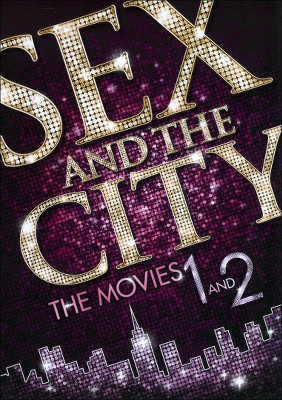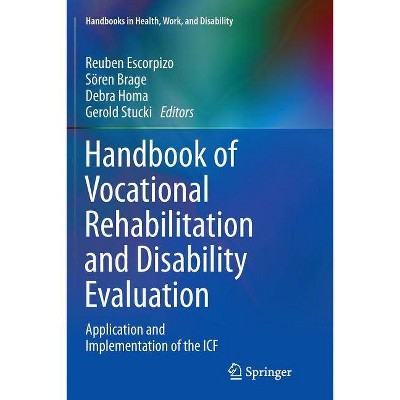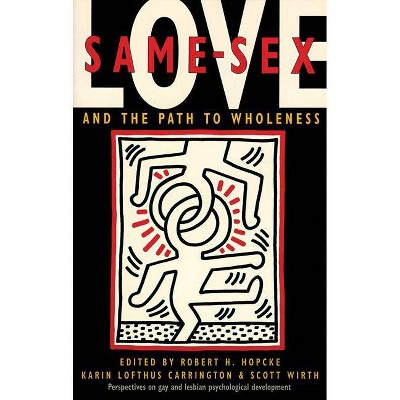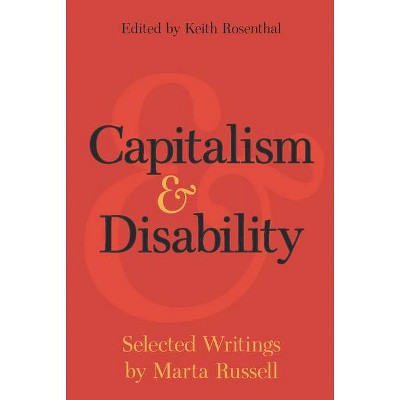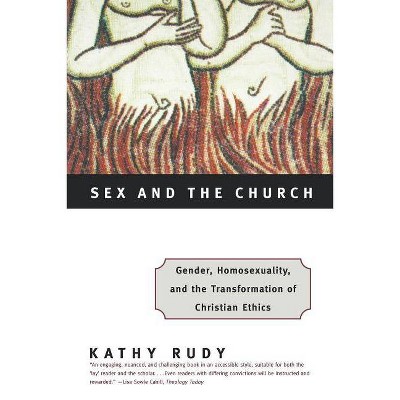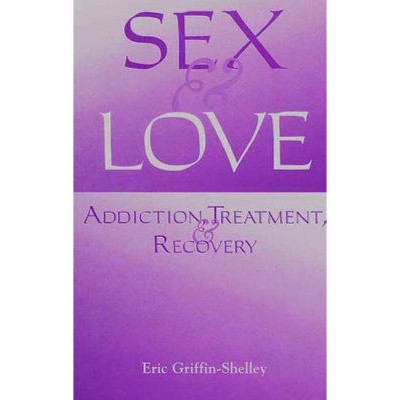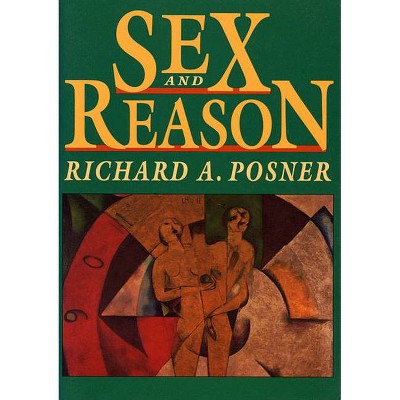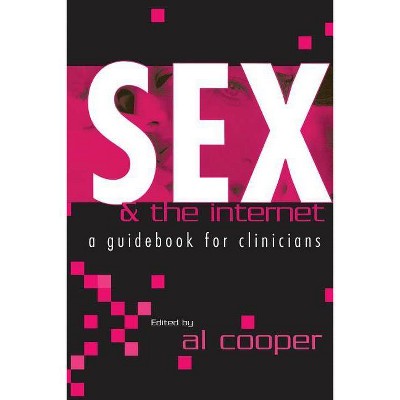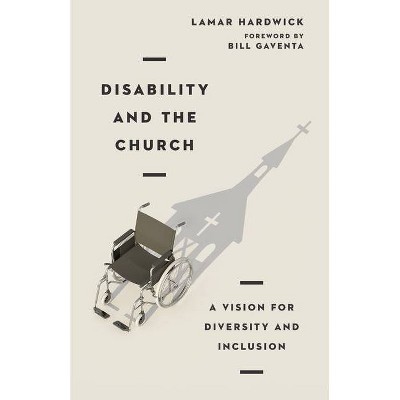Sex and Disability - by Robert McRuer (Paperback)
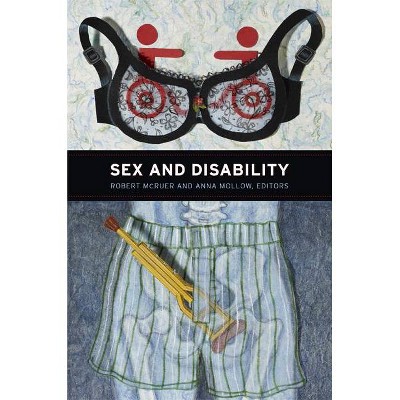
Similar Products
Products of same category from the store
AllProduct info
<p/><br></br><p><b> About the Book </b></p></br></br>This collection brings together scholars and artists in disability studies, sexuality, queer theory, and feminism, to show how much sexuality studies and disability studies have to learn from each other.<p/><br></br><p><b> Book Synopsis </b></p></br></br>The title of this collection of essays, <i>Sex and Disability</i>, unites two terms that the popular imagination often regards as incongruous. The major texts in sexuality studies, including queer theory, rarely mention disability, and foundational texts in disability studies do not discuss sex in much detail. What if "sex" and "disability" were understood as intimately related concepts? And what if disabled people were seen as both subjects and objects of a range of erotic desires and practices? These are among the questions that this collection's contributors engage. From multiple perspectives-including literary analysis, ethnography, and autobiography-they consider how sex and disability come together and how disabled people negotiate sex and sexual identities in ableist and heteronormative culture. Queering disability studies, while also expanding the purview of queer and sexuality studies, these essays shake up notions about who and what is sexy and sexualizable, what counts as sex, and what desire is. At the same time, they challenge conceptions of disability in the dominant culture, queer studies, and disability studies.<br><i><br>Contributors</i>. Chris Bell, Michael Davidson, Lennard J. Davis, Michel Desjardins, Lezlie Frye, Rachael Groner, Kristen Harmon, Michelle Jarman, Alison Kafer, Riva Lehrer, Nicole Markotic, Robert McRuer, Anna Mollow, Rachel O'Connell, Russell Shuttleworth, David Serlin, Tobin Siebers, Abby L. Wilkerson<p/><br></br><p><b> Review Quotes </b></p></br></br><br>"<i>Sex and Disability</i> is one of the most important volumes to appear in disability studies in years and, I would hazard to guess, in sexuality studies as well."--Bruce Henderson "Journal of Sex Research"<br><br>"[R]apturous and sophisticated in both scope and nuance."--Jacob Miller "Cyberhetoric"<br><br>"[S]timulating, thought-provoking, and fascinating. Many of the entries left me with food for thought, including some intriguing reframing of social issues that will inform my own work in the future."--S. E. Smith " Global Comment"<br><br>"Although sexuality studies and disability studies have independently generated much scholarship, few have sufficiently bridged the disciplines as extensively as this anthology and showed as convincingly that "sex and disability" do in fact come together.... Recommended."--Y. Kiuchi "Choice"<br><br>"As a political intellectual project, <i>Sex and Disability</i> aims toward a queer disability refusal of the normalization of our bodies, desires, spaces, imaginations. This refusal is an opening: what might happen to queer theories and practices of sexuality if we centered disability? ... [T]he editors have set the stage for future conversations, political action, and, really, hotter sex."--Alexis Shotwell "Signs"<br><br>"Mollow and McRuer have edited an important book. The collection is an exciting contribution to the fields of disability, queer studies, and queer theory. Every chapter is an inspirational read, but taken together, the contributions provide insightful discussion with layers of reflection that would be difficult to incorporate otherwise. The volume not only shows the multiple ways sex and disability are intertwined, but also invites readers to think beyond established understandings of those concepts, thereby challenging boundaries and transforming ideas of disability and sex."--Nina Mackert "H-Disability, H-Net Reviews"<br><br>"The vast majority of the contributions that engage with queer and disability theory here are, by turns, beautifully written, engaging, perceptive, hilarious, and nuanced. . . . [A]n intellectually invigorating read."--Anna Hamilton "Bitch"<br><br>"This book shows sex to be at work in encounters and objects not usually considered to be erotic, and marks the terrifying and exhilarating ways in which disability turns up in unexpected places. Such an undressing of sex and disability as is provided in this collection is sure to have a significant impact on disability studies in the years to come."--Kelly Fritsch "Canadian Journal of Disability Studies"<br><br>"Though McRuer and Mollow acknowledge that they are not the first to bridge these fields, what they do here, and quite impressively, is to harness the energies of this emerging discourse into a single volume at a defining moment in disability studies and disability culture. . . . One of the anthology's most exciting elements is the complicated interplay its essays stage between body theory and embodied experience." --Cynthia Barounis "symploke"<br><br>"This is a big collection, literally, politically, and theoretically. With essays drawing on sociology, anthropology, literary studies, history, and cultural studies, as well as some more lyrical, performative, and autobiographical, <i>Sex and Disability</i> will be indispensable for a wide range of audiences in gender studies, disability studies, queer studies and beyond."--<b>Siobhan B. Somerville</b>, author of <i>Queering the Color Line: Race and the Invention of Homosexuality in American Culture</i><br><br>"This riveting collection of essays is a fascinating rethinking of what sex and disability could feel like together, affirmatively and generatively. Opening with a candid, frank introduction that moves deftly between the autobiographical and the political, the volume mounts a serious challenge to the sex-ableism of queer theory and the tendency to think of sex and disability in negative terms. Having read about pregnant men, the vagaries of touch, amputee devotees, and sex addiction, the reader will emerge uncertain about what exactly sex is, who has it, and with what. More trenchantly, these works demand an acknowledgement of how notions of ableism severely limit broader experiences of sexual erotics, intimacy, and arousal. Kudos to the editors for undertaking this important project."--<b>Jasbir K. Puar</b>, author of <i>Terrorist Assemblages: Homonationalism in Queer Times</i><br><p/><br></br><p><b> About the Author </b></p></br></br><p>Robert McRuer is Professor of English at the George Washington University. He is the author of <i>Crip Theory: Cultural Signs of Queerness and Disability </i>and <i>The Queer Renaissance: Contemporary American Literature and the Reinvention of Lesbian and Gay Identities</i>.</p><p>Anna Mollow is a PhD candidate in English at the University of California, Berkeley.</p>
Price History
Price Archive shows prices from various stores, lets you see history and find the cheapest. There is no actual sale on the website. For all support, inquiry and suggestion messages communication@pricearchive.us

